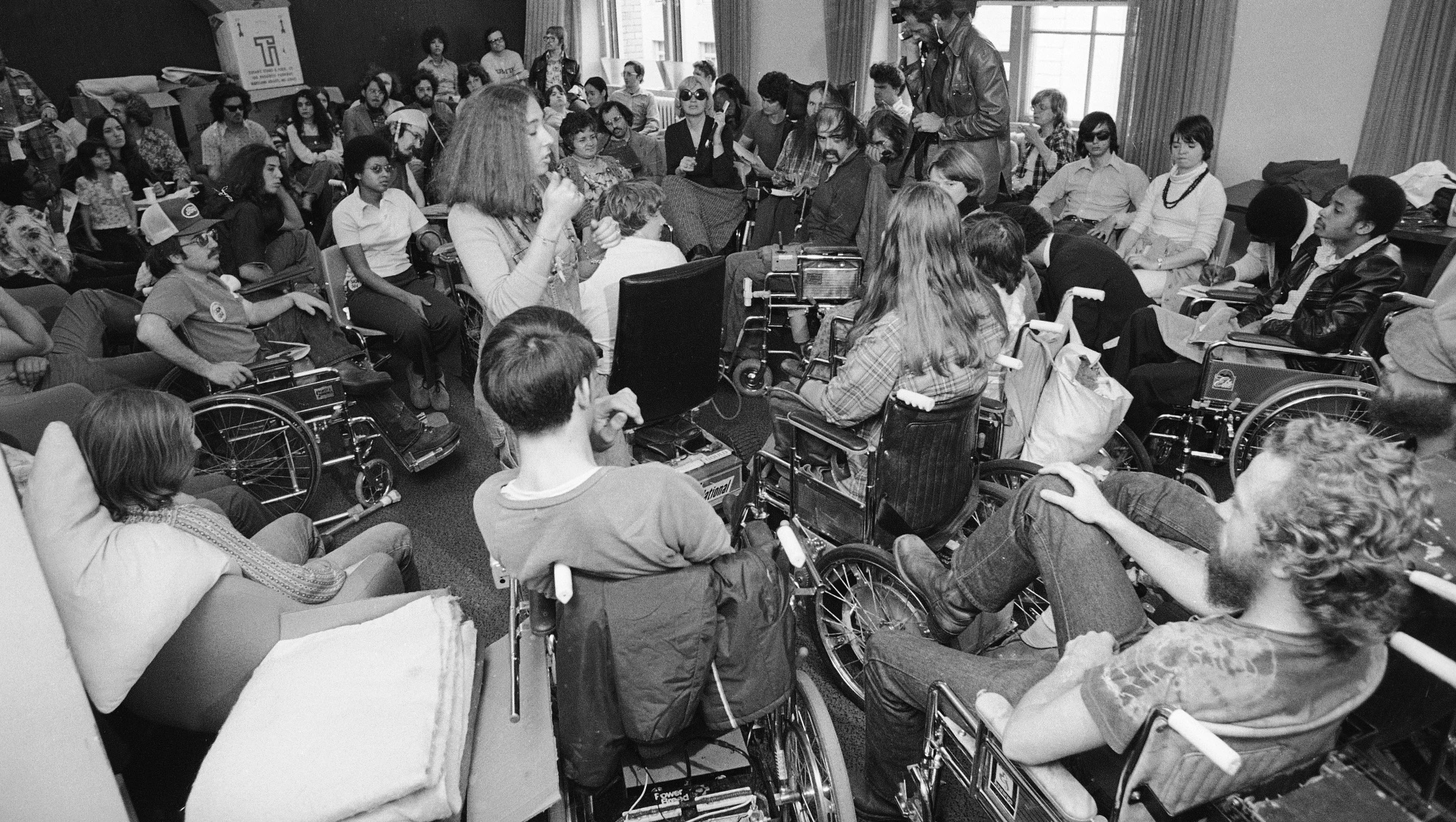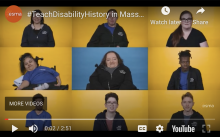GBH News - Boston published a story and accompanying quiz on the emerging movement to #TeachDisabilityHistory.
See the article at Teaching disability history in schools is 'long overdue,' advocates say. Teachers, community advocates, and resource leaders comment on developments in the growing field. Follow links to legislation from multiple states.
See the introduction to the quiz below, and follow the link to take the quiz. GBH based the quiz on landmark work of the #TeachDisabilityHistory campaign of Easterseals Massachusetts.
Quiz: How much disability history do you know?
April 02, 2024.
Schools across the United States are implementing more inclusive curriculums, and the disability community wants to be represented in those efforts.
A local nonprofit, Easterseals Massachusetts, has launched a campaign to bring more awareness to disability history and encourage teachers in Massachusetts to include more of that history in their classrooms.
Many people with disabilities say they never saw themselves in history textbooks. That's starting to change.






